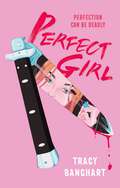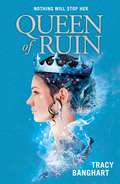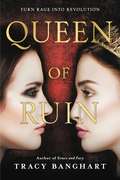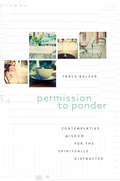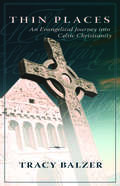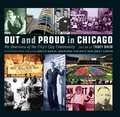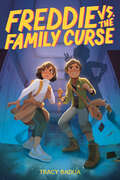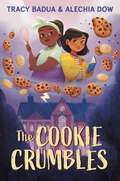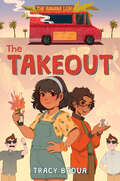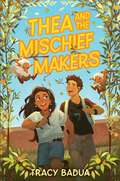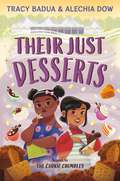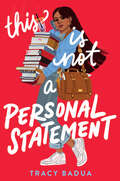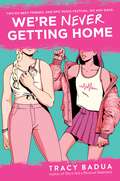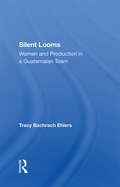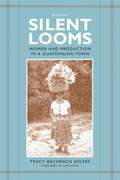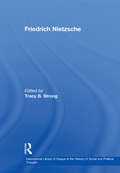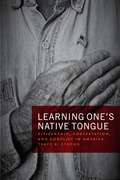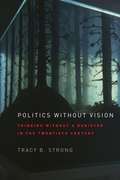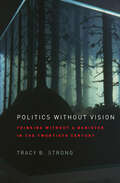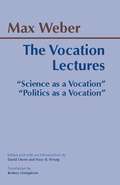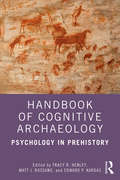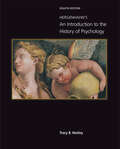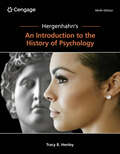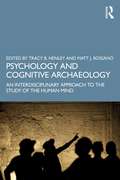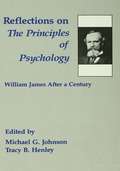- Table View
- List View
Perfect Girl
by Tracy BanghartAN EDGE-OF-YOUR-SEAT THRILLER FROM THE AUTHOR OF GRACE AND FURY " A riveting thriller packed with so many chills and swoon-worthy moments, readers will be tearing through the pages." ―Natalie C. Parker, award winning author of the Seafire Series"A chilling cat-and-mouse game." ―April Henry, New York Times bestselling author of Girl, Stolen and Stay DeadJessa has been raised to be the “perfect girl.” She is unfailingly polite, never rocks the boat, and always follows the rules—no matter what. Her friends love to give her a hard time for being such a goody two-shoes, but Jessa likes it this way. She knows what's expected of her, and she's happy to be the person her parents (and society) want.When a freak storm takes out the power during a sleepover at Jessa’s creepy, old house, things go south before the pizza gets cold. Her friends are at each other’s throats, unexpected guests keep showing up (some more welcome than others), and it’s not just her brother serving up jump scares. A killer looking for the perfect girl has targeted Jessa, and she’ll have to reject everything she’s been taught if she wants to keep herself—and her friends—alive until sunrise.Who knew perfection could be so dangerous? “Banghart mischievously upends all the sleepover-and-pizza conventions to create a twisty tale of love and desire gone foul. A darkly jubilant, unbound, addictive read.” ―Derek Milman, author of A Darker Mischief and Swipe Right for Murder"Deliciously smart, suspenseful, and chilling. Perfect Girl is almost too good." ―Anica Mrose Rissi, author of Nobody Knows But You "Perfect for a stormy night!” Diana Rodriguez Wallach, author of Small Town Monsters and Hatchet Girls
Queen of Ruin
by Tracy BanghartThe breathtaking sequel to Grace and Fury. A fierce tale of sisterhood, courtly intrigue, and heart pounding action, perfect for fans of Red Queen and The Selection.Nomi and Malachi find themselves powerless and headed towards their all-but-certain deaths. Now that Asa sits on the throne, he will stop at nothing to make sure Malachi never sets foot in the palace again. Nomi's sister, Serina, is far away on the prison island of Mount Ruin - but it is in the grip of revolution and Serina leads. The women there have their sights set on revenge beyond the confines of their island prison. They will stop at nothing to gain freedom for the entire kingdom. But first they'll have to get rid of Asa, and only Nomi knows how.Separated once again, this time by choice, Nomi and Serina must forge their own paths as they aim to tear down the world they know, to build something better in its place.
Queen of Ruin (Grace and Fury #2)
by Tracy BanghartA fierce sequel full of sisterhood, heart pounding action, betrayal, and intrigue in the royal court in a series that "breathes new life into the feminist story of oppression and resistance" (Publisher's Weekly).When the new, brutal Superior banishes Nomi from Bellaqua, she finds herself powerless and headed towards her all-but-certain death. Her only hope is to find her sister, Serina, on the prison island of Mount Ruin. But when Nomi arrives, it is not the island of conquered, broken women that they expected. It is an island in the grip of revolution, and Serina--polite, submissive Serina--is its leader.Betrayal, grief, and violence have changed both sisters, and the women of Mount Ruin have their sights set on revenge beyond the confines of their island prison. They plan to sweep across the entire kingdom, issuing in a new age of freedom for all. But first they'll have to get rid of the new Superior, and only Nomi knows how.Separated once again, this time by choice, Nomi and Serina must forge their own paths as they aim to tear down the world they know, and build something better in its place.The stakes are higher and the battles bolder in Tracy Banghart's unputdownable sequel to Grace and Fury.
Permission to Ponder: Contemplative Wisdom for the Spiritually Distracted
by Tracy BalzerGod gives us permission to meditatively ponder, even in the midst of our fragmented existence. He invites us to "listen, that you may live."Many Christians are distracted and dissatisfied. The external demands of life grip us, while our inner walk with God becomes ever more superficial and thin. Is there hope for authentic connection with God in a world of distractions, or must we be resigned to a spiritually shallow existence? Reflection, contemplation, and meditation are ancient practices that are losing ground in a highly technological world. Permission to Ponder examines the ways others have accepted the invitation from God to dwell deeply, beginning with "the Four Marys" of the Gospels. In the midst of their stories, the classical discipline of lectio divina—praying the Scripture—will serve as a template for praying and pondering all of life.
Thin Places: An Evangelical Journey into Celtic Christianity
by Tracy BalzerThin Places introduces contemporary Christians to the great spiritual legacy of the early Celts, a legacy that has remained undiscovered or inaccessible for many evangelical Christians. It provides ways for us to learn from this ancient faith expression, applying fresh and lively spiritual disciplines to our own modern context.
Out and Proud in Chicago
by Tracy BaimOut and Proud in Chicago takes readers through the long and rich history of the city's LGBT community. Lavishly illustrated with color and black-and white-photographs, the book draws on a wealth of scholarly, historical, and journalistic sources. Individual sections cover the early days of the 1800s to World War II, the challenging community-building years from World War II to the 1960s, the era of gay liberation and AIDS from the 1970s to the 1990s, and on to the city's vital, post-liberation present.
Freddie vs. The Family Curse
by Tracy BaduaIn this thrilling and hilarious middle grade adventure, a young Filipino-American boy must team up with his ancestor to break the curse that’s haunted their family for generations . . . or be trapped in an amulet forever.Freddie Ruiz is cursed.While other people may have bad days, Freddie and his family have had bad generations: from bird poop splatting on him during picture day to the many tumbles and trips that earned him the nickname Faceplant Freddie. He’s learned to lay low and keep himself out of trouble—which means no fun, no friends, and definitely no risks.But when he discovers a family heirloom, a century-old amulet from the Philippines that’s supposed to bring good fortune, Freddie thinks his luck is finally about to change.He couldn’t be more wrong. Because the spirit of Freddie’s cranky great-granduncle Ramon is trapped in the heirloom, and the evil spirits responsible for his death have returned with a vengeance. Now, Freddie and his cousin, Sharkey, have thirteen days to break the curse, or Freddie will join Ramon for an untimely afterlife in the amulet.
The Cookie Crumbles
by Alechia Dow Tracy BaduaThe Great British Bake Off meets Knives Out in this fun and propulsive middle grade novel following two best friends who must solve the mystery behind a baking competition gone awry.Laila gave Lucy a cupcake on the second day of kindergarten, and they've been inseparable ever since. But the summer before eighth grade, they find out that since they live on opposite sides of town, they’ll go to different high schools. Yuck!Then Laila’s invited to compete at the Golden Cookie competition, which awards its winner admission and a full ride to the prestigious Sunderland boarding school, and it’s the perfect opportunity. Sunderland doesn’t just have an elite culinary program; it’s also home to an elite journalism track, if only newscaster-hopeful Lucy could build up a strong enough portfolio to impress the scholarship committee.But when one of the celebrity judges collapses after sampling Laila’s showpiece, rumors of foul play swirl, with Laila rising to the top of the suspect list. Even worse, a major storm has effectively cut off all access to the outside world.Can the girls find the real culprit and clear Laila’s name before it’s too late?
The Takeout
by Tracy BaduaWhen a celebrity chef’s new restaurant threatens Mila’s family’s food truck, she plans to expose them for the recipe thieves they are—even if that means dabbling in the Filipino folk magic she’s tried to avoid. Fans of Tae Keller and Lily LaMotte will cheer for this charming story about food, family, and finding the place you belong.Mila may have moved to Coral Beach months ago, but it still doesn’t feel like home. She wants to belong, but a few awkward incidents with her new friends make her wonder if she’ll ever neatly fit into the super-samey small town.Mila feels the only place she can be herself is at her dad’s Filipino-Indian food truck, The Banana Leaf. But when celebrity chef twins the Fab Foodie Brothers open a restaurant nearby, it turns out the food they are serving is exactly the same as The Banana Leaf's--right down to the recipes!Suspicious of the similarities, Mila teams up with family friend Ajay to investigate. She soon realizes that she needs to take the beloved Fab Foodie Brothers down before they run her family's tiny truck out of town. But that means dabbling in the Filipino folk healing and magical traditions that she has shied away from her whole life . . . as well as alienating her new friends. Does Mila have to choose between her family and fitting in? Or, like the best recipes, will a blend of the traditional and the unexpected mix into something truly special?
Thea and the Mischief Makers
by Tracy BaduaIn this magical adventure that's perfect for fans of Lisa Yee and Erin Entrada Kelly, star athlete Thea must face her worst fears when two mischievous duwendes, Filipino goblins, threaten to wreak havoc on her life—and destroy her town.Thea gets a chance to begin anew at Pacific Academy. There, she’s a star athlete, someone with friends and popularity. But disaster strikes at Junior Stunt Warrior summer camp with her new friends: Her extremely uncool former best friend, Evan, shows up too, and she discovers that stunt class is the one activity she’s not good at. Actually, it’s something she’s terrified of. It all reminds Thea of the shy, invisible version of herself she’s determined to leave behind. Then, in the midst of building a practice obstacle course, Thea wrecks a tree that a pair of grumpy duwendes—Filipino goblins—call home. She’s shocked that not only are duwendes real, but the two in her backyard want revenge. Now Thea must team up with friends new and old to fend off the duwendes before they destroy her entire neighborhood. But can she pull it off while saving her cool-girl image, too?
Their Just Desserts
by Alechia Dow Tracy BaduaPerfect for fans of The Great British Baking Show and Clue, this enchanting and rollicking follow-up to The Cookie Crumbles follows two best friends caught up in a twisty mystery when jewels go missing at a high-stakes baking competition.Baker extraordinaire Laila Thomas and budding journalist Lucy Flores are living it up at the top of the junior high food chain as eighth graders. But between busy schedules and kinda-boyfriends, these two best friends haven’t gotten to hang out as much. So, when Jaden, an ex-competition rival, begs the duo to step back into the world of cooking competitions and crime—the answer is yes.Jaden is desperate: His father is accused of stealing prized jewels on the set of an amateur kids’ holiday baking show. The plan is for Laila to smash the competition while Lucy investigates behind the scenes—but their half-baked plan gets turned totally upside down when Lucy ends up in front of the cameras instead.As the investigation and competition heat up, Lucy and Laila’s bond is put to the ultimate test. Can they solve this bakeoff mystery, or will they—and their friendship—crack under pressure?
This Is Not a Personal Statement
by Tracy BaduaAdmission meets American Panda in this propulsive, poignant YA contemporary novel about a teen who, after getting rejected from her dream college, forges her own acceptance and commits to living a lie. Perfect for fans of Mary H.K. Choi! At sixteen, Perla is the youngest graduating senior of the hypercompetitive Monte Verde High. Praised—and not-so-quietly bashed—as “Perfect Perlie Perez,” Perla knows all the late nights, social isolation, and crushing stress will be worth it when she gets into the college of her (and her parents’) dreams: Delmont University. Then Perla doesn’t get in, and her meticulously planned future shatters. In a panic, she forges her own acceptance letter, and next thing she knows, she’s heading to Delmont for real, acceptance or not. Soon, Perla is breaking into dorm rooms, crashing classes, and dodging questions from new friends about her lack of a student ID. Her plan? Gather on-the-ground intel to beef up her application and reapply spring semester before she’s caught. But as her guilty conscience grows and campus security looms large, Perla starts to wonder if her plan will really succeed—and if this dream she’s worked for her entire life is something she even wants. From rising star Tracy Badua comes a gripping, incisive tale of acceptance, self-discovery, and the infinite possibilities that await when we embrace our imperfections.
We're Never Getting Home
by Tracy BaduaHBO’s Insecure meets Dazed and Confused in this messy, tender YA novel about a friendship breakup, set against the backdrop of a chaotic night at a music festival, from rising talent Tracy Badua.Jana Rubio and her best friend, Maddy Parsons, have an epic senior year finale queued up: catching their favorite band at the Orchards, an outdoor music festival a two-hour drive away. When a blowup over Maddy’s time-sucking boyfriend exposes a rift that may have already been growing between them, Jana calls off their joint trip and gets a lift to the festival from her church friend Nathan…only to realize Maddy and her boyfriend are along for the ride, too.All Jana wants is to enjoy the concert and get home as soon as possible. But then Nathan loses his car keys crowd-surfing, and it’s up to Jana and Maddy to find them. As they navigate stolen phones and missing friends, scale Ferris wheels and crash parties, the two of them are forced to reckon with the biggest obstacle of all: repairing their friendship.Will Jana and Maddy find their way home—and also back to each other?
Silent Looms: Women And Production In A Guatemalan Town
by Tracy Bachrach Ehlers"In her book, Silent Looms: Women and Production in a Guatemalan Town, Tracy Bachrach Ehlers captures the paradox of gender relations in a society that accords power and authority to men yet leaves the major burden of child care and economic maintenance of the family to women. Most monographs on Maya populations have either ignored women's contributions to the indigenous economy or, when they have included women's work, have ignored the contradiction between patriarchal ideology and observed behavior that is increasingly sharpened by the political and economic transformations taking place. "
Silent Looms: Women and Production in a Guatemalan Town
by Tracy Bachrach EhlersBased on new fieldwork in 1997, Tracy Bachrach Ehlers has updated her classic study of the effects of economic development on the women weavers of San Pedro Sacatepéquez. Revisiting many of the women she interviewed in the 1970s and 1980s and revising her earlier hopeful assessment of women's entrepreneurial opportunities, Ehlers convincingly demonstrates that development and commercial growth in the region have benefited men at the expense of women.
Friedrich Nietzsche (International Library of Essays in the History of Social and Political Thought)
by Tracy B. StrongFrom his first readers to the present, Friedrich Nietzsche has found supporters and detractors on every point of the political spectrum. In the introduction to this volume, Tracy Strong analyzes the reasons for this diversity of reception. They are to be found, not only in modern social and political developments but, more importantly, in the purpose and style of Nietzsche's writing. The volume includes selections from all major interpretive schools, including some from the early part of the twentieth century, an appendix presenting a new translation of one of Nietzsche's most controversial writings, The Greek State, and a lengthy bibliography of writings on Nietzsche and politics. The essays gathered together in this volume are the work of the most seminal Nietzsche scholars and, taken together, provide a comprehensive study of Nietzsche's political thought.
Learning One’s Native Tongue: Citizenship, Contestation, and Conflict in America
by Tracy B. StrongCitizenship is much more than the right to vote. It is a collection of political capacities constantly up for debate. From Socrates to contemporary American politics, the question of what it means to be an authentic citizen is an inherently political one. With Learning One’s Native Tongue, Tracy B. Strong explores the development of the concept of American citizenship and what it means to belong to this country, starting with the Puritans in the seventeenth century and continuing to the present day. He examines the conflicts over the meaning of citizenship in the writings and speeches of prominent thinkers and leaders ranging from John Winthrop and Roger Williams to Thomas Jefferson, Nathaniel Hawthorne, Abraham Lincoln, Frederick Douglass, and Franklin Roosevelt, among many others who have participated in these important cultural and political debates. The criteria that define what being a citizen entails change over time and in response to historical developments, and they are thus also often the source of controversy and conflict, as with voting rights for women and African Americans. Strong looks closely at these conflicts and the ensuing changes in the conception of citizenship, paying attention to what difference each change makes and what each particular conception entails socially and politically.
Politics Without Vision: Thinking Without a Banister in the Twentieth Century
by Tracy B. StrongFrom Plato through the nineteenth century, the West could draw on comprehensive political visions to guide government and society. Now, for the first time in more than two thousand years, Tracy B. Strong contends, we have lost our foundational supports. In the words of Hannah Arendt, the state of political thought in the twentieth and twenty-first centuries has left us effectively "thinking without a banister. " Politics without Vision takes up the thought of seven influential thinkers, each of whom attempted to construct a political solution to this problem: Nietzsche, Weber, Freud, Lenin, Schmitt, Heidegger, and Arendt. None of these theorists were liberals nor, excepting possibly Arendt, were they democrats--and some might even be said to have served as handmaidens to totalitarianism. And all to a greater or lesser extent shared the common conviction that the institutions and practices of liberalism are inadequate to the demands and stresses of the present times. In examining their thought, Strong acknowledges the political evil that some of their ideas served to foster but argues that these were not necessarily the only paths their explorations could have taken. By uncovering the turning points in their thought--and the paths not taken--Strong strives to develop a political theory that can avoid, and perhaps help explain, the mistakes of the past while furthering the democratic impulse. Confronting the widespread belief that political thought is on the decline, Strong puts forth a brilliant and provocative counterargument that in fact it has endured--without the benefit of outside support. A compelling rendering of contemporary political theory, Politics without Vision is sure to provoke discussion among scholars in many fields.
Politics without Vision: Thinking without a Banister in the Twentieth Century
by Tracy B. Strong&“Magisterial…a frequently surprising treatment of major political thinkers.&”—Perspectives on Politics From Plato through the nineteenth century, the West could draw on comprehensive political visions to guide government and society. Now, for the first time in more than two thousand years, Tracy B. Strong contends, we have lost our foundational supports. In the words of Hannah Arendt, the state of political thought in the twentieth and twenty-first centuries has left us effectively thinking without a banister. Politics without Vision takes up the thought of seven influential thinkers, each of whom attempted to construct a political solution to this problem: Nietzsche, Weber, Freud, Lenin, Schmitt, Heidegger, and Arendt. None of these theorists were liberals; nor, excepting possibly Arendt, were they democrats—and some might even be said to have served as handmaidens to totalitarianism. And all, to a greater or lesser extent, shared the common conviction that the institutions and practices of liberalism are inadequate to the demands and stresses of the present times. In examining their thought, Strong acknowledges the political evil that some of their ideas served to foster but argues that these were not necessarily the only paths their explorations could have taken. By uncovering the turning points in their thought—and the paths not taken—Strong strives to develop a political theory that can avoid, and perhaps help explain, the mistakes of the past while furthering the democratic impulse. Confronting the widespread belief that political thought is on the decline, Strong puts forth a brilliant and provocative counterargument that in fact it has endured—without the benefit of outside support. A compelling rendering of contemporary political theory, Politics without Vision is sure to provoke discussion among scholars in many fields.
The Vocation Lectures
by Max Weber David Owen Tracy B. Strong Rodney LivingstoneOriginally published separately, Weber's Science as a Vocation and Politics as a Vocation stand as the classic formulations of his positions on two related subjects that go to the heart of his thought: the nature and status of science and its claims to authority; and the nature and status of political claims and the ultimate justification for such claims. Together in this volume, these newly translated lectures offer an ideal point of entry into Weber's central project: understanding how, as Weber put it, "in the West alone there have appeared cultural manifestations [that seem to] go in the direction of universal significance and validity.
Handbook of Cognitive Archaeology: Psychology in Prehistory
by Matt J. Rossano Tracy B. Henley Edward P. KardasThe remains that archaeologists uncover reveal ancient minds at work as much as ancient hands, and for decades many have sought a better way of understanding those minds. This understanding is at the forefront of cognitive archaeology, a discipline that believes that a greater application of psychological theory to archaeology will further our understanding of the evolution of the human mind. Bringing together a diverse range of experts including archaeologists, psychologists, anthropologists, biologists, psychiatrists, neuroscientists, historians, and philosophers, in one comprehensive volume, this accessible and illuminating book is an important resource for students and researchers exploring how the application of cognitive archaeology can significantly and meaningfully deepen their knowledge of early and ancient humans. This seminal volume opens the field of cognitive archaeology to scholars across the behavioral sciences.
Hergenhahn’s An Introduction to the History of Psychology
by Tracy B. HenleyDreams puzzled early man, Greek philosophers spun elaborate theories to explain human memory and perception, Descartes postulated that the brain was filled with "animal spirits" and Psychology was officially deemed a "science" in the 19th century. In the new HERGENHAHN'S AN INTRODUCTION TO THE HISTORY OF PSYCHOLOGY, noted author Tracy Henley shows you that most of the concerns of contemporary psychologists are manifestations of themes that have recurred for hundreds--or even thousands--of years. Photographs and learning tools, along with fascinating biographical material on key figures in Psychology, engage you and aid your understanding.
Hergenhahn’s an Introduction to the History of Psychology
by Tracy B. HenleyFor more than 35 years, numerous independent reviewers, student advice writers and even competitors have heralded HERGENHAHN'S AN INTRODUCTION TO THE HISTORY OF PSYCHOLOGY as the best in the field -- and for good reason. It was the first history of psychology text to include basic pedagogy -- with elements such as summaries and study questions that several current alternatives still lack. It engages students with interesting biographical tidbits -- the fun facts that readers fondly remember after other details fade. Grounded in original source material and contemporary scholarship, Henley's HEREGENHAN'S AN INTRODUCTION TO THE HISTORY OF PSYCHOLOGY, 9th Edition provides breadth and depth of analysis unrivaled by works of similar length. Author Tracy Henley has continued to operate from Hergenhahn's original thesis that most contemporary psychologists' concerns are manifestations of themes that have been part of our discipline for hundreds -- or even thousands -- of years.
Psychology and Cognitive Archaeology: An Interdisciplinary Approach to the Study of the Human Mind
by Tracy B. HenleyPsychology and Cognitive Archaeology demonstrates the potential of using cognitive archaeology framing to explore key issues in contemporary psychology and other behavioral sciences. This edited volume features psychologists exploring archaeological data concerning specific themes such as: the use of tools, our child-rearing practices, our expressions of gender and sexuality, our sleep patterns, the nature of warfare, cultural practices, and the origins of religion. Other chapters touch on cognitive archaeological methods, the history of evolutionary approaches in psychology, and relevant philosophical considerations to further illustrate the interdisciplinary potential between archaeology and psychology. As a complementary counterpoint, the book also includes an archaeologist’s perspective on these same topical matters, as well as robust introductory and concluding thoughts by the editors. This book will be an illuminating read for students and scholars of psychology (particularly theoretical, social, cognitive, and evolutionary psychology), as well as philosophy, archaeology, and anthropology.
Reflections on the Principles of Psychology: William James After A Century
by Michael G. Johnson Tracy B. HenleyThis important volume looks back to 1890 and -- 100 years later -- asks some of the same questions William James was asking in his Principles of Psychology. In so doing, it reviews our progress toward their solutions. Among the contemporary concerns of 1990 that the editors consider are: the nature of the self and the will, conscious experience, associationism, the basic acts of cognition, and the nature of perception. Their findings: Although the developments in each of these areas during the last 100 years have been monumental, James' views as presented in the Principles still remain viable and provocative. To provide a context for understanding James, some chapters are devoted primarily to recent scholarship about James himself -- focusing on the time the Principles was written, relevant intellectual influences, and considerations of his understanding of this "new" science of psychology. The balance of this volume is devoted to specific topics of particular interest to James. One critical theme woven into almost every chapter is the tension between the role of experience (or phenomenological data) within a scientific psychology, and the viability of a materialistic (or biologically reductive) account of mental life. Written for professionals, practitioners, and students of psychology -- in all disciplines.
